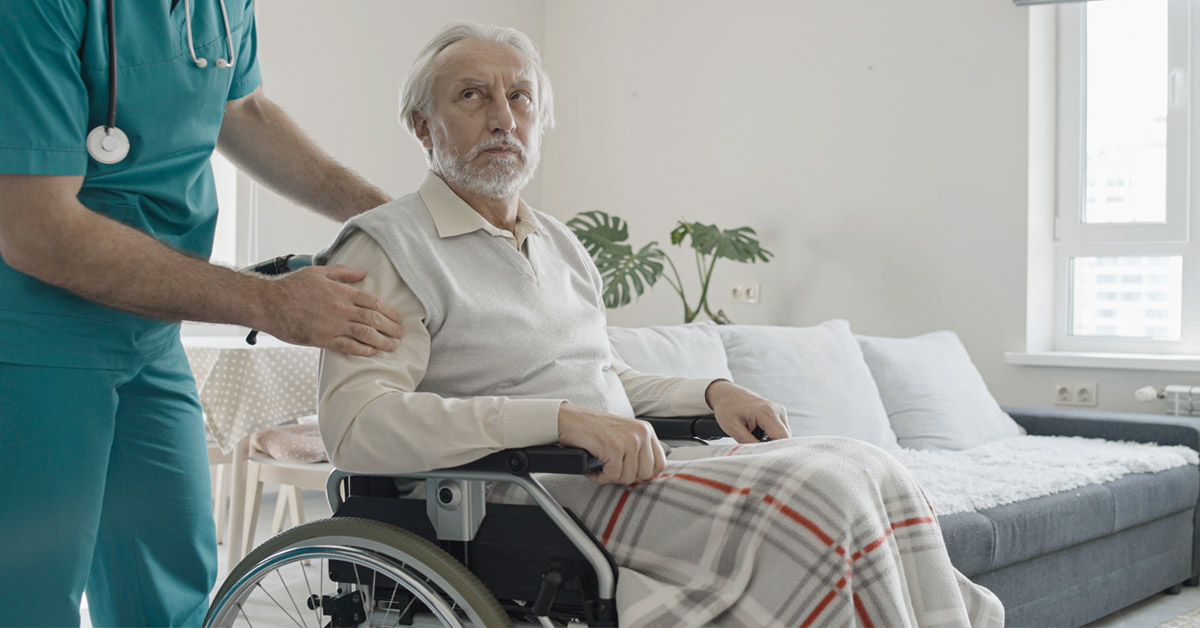
40% of Seniors Have Errors in Their Medication Lists
A study recently published in the Collegian finds that 40% of people age 65+ have errors in their medication lists when they are leaving hospitals.1 Are these errors important? Among the patients who had these errors, 68% had to be readmitted to the hospital within six months. Med errors may play a role.
Healthcare professionals call the problem “medication discrepancies,” and they are well aware of the challenge. Across different groups of patients, med list errors have been measured from 14% to 86%.2-6
Risk Factors for Med List Errors
In the current study, Elizabeth Manias and colleagues found factors that increase the risk.
- No Support at Home: This increases the risk 171%. Having a spouse, family caregiver, or paid home care aide helps seniors work with doctors to keep their meds straight.
- Multiple Transfers: This refers to moving between departments or facilities. For example, moving between the ER, cardiac ward, intensive care, nursing home, etc. More than four transfers increases the risk 148%.
- Multiple Prescriptions: When people are taking multiple medications even before they go to the hospital, their med list is more likely to get messed up. Each prescription increases the risk 13%.
How Seniors Can Protect Themselves
Trust but Verify
Seniors should make sure their medication lists are up to date at all times. One never knows when it will be time to go to the hospital. Additionally, they should keep that medication list in a convenient place so people can grab it on the day they are rushing out the door to the hospital. While staying at the hospital, patients should, as much as possible, monitor changes to the medication list. Where take-home prescriptions are concerned, patients should insist on an explanation for each change to the medication list they brought.
See Your Doctor Within 48 Hours of Going Home
People often underestimate the challenges of moving from inpatient care to home. This results in failing health and bouncing back to the hospital. The general practice doctor or other main doctor helps ensure a successful transition. Hospitals are bad about notifying doctors when their patients go home. Patients have to insist that inpatient facilities send their records and discharge notice to the main doctor. Then, seniors should schedule an appointment with the doctor within 48 hours of returning home, or a few days later if the doctor says it’s okay. One of the main things the outpatient doctor will do is doublecheck the med list from the hospital.
Use Home Care
Keeping up with multiple prescriptions proves challenging. People need to know what each med is for, when to take it, how food can interact with it, how to recognize if it is working, and how to recognize if it is causing problems. When we are thinking realistically, this is often more than can be explained in a standard doctor’s visit.
Skilled home health stands out as one possible solution. When patients meet Medicare’s definition of homebound, Medicare pays 100%. Nurses make multiple home visits to explain every med, to set up reminder strategies, and to follow up and make sure everything is going according to plan.
Non-medical home care and/or private duty nursing helps with more long-term needs. Medicare and health insurance only pay for home nursing on a short-term basis, which means a few weeks to a few months. When retirees need help for the foreseeable future, families should plan for other types of home care. Private duty nurses can set up pillboxes and give shots. Home care aides can give medication reminders and other assistance. Non-medical home care costs less, because aides deliver the service instead of nurses. Additionally, Medicaid has programs that pay for non-medical home care.
References:
- Manias E, Annakis N, Considine J, Weerasuriya R, Kusljic S. Patient-, medication-and environment-related factors affecting medication discrepancies in older patients. Collegian. 2017 Dec 1;24(6):571-7.
- Kee KW, Char CW, Yip AY. A review on interventions to reduce medication discrepancies or errors in primary or ambulatory care setting during care transition from hospital to primary care. Journal of Family Medicine and Primary Care. 2018 May;7(3):501.
- Azzi M, Constantino M, Pont L, Mcgill M, Twigg S, Krass I. Medication safety: an audit of medication discrepancies in transferring type 2 diabetes mellitus (T2DM) patients from Australian primary care to tertiary ambulatory care. International Journal for Quality in Health Care. 2014 May 19;26(4):397-403.
- Coleman EA, Smith JD, Raha D, Min SJ. Posthospital medication discrepancies: prevalence and contributing factors. Archives of Internal Medicine. 2005 Sep 12; 165 (16): 1842-7.
- Manias E, Gerdtz MF, Weiland TJ, Collins M. Medication use across transition points from the emergency department: identifying factors associated with medication discrepancies. Annals of Pharmacotherapy. 2009 Nov;43(11):1755-64.
- Wong JD, Bajcar JM, Wong GG, Alibhai SM, Huh JH, Cesta A, Pond GR, Fernandes OA. Medication reconciliation at hospital discharge: evaluating discrepancies. Annals of Pharmacotherapy. 2008 Oct;42(10):1373-9.






